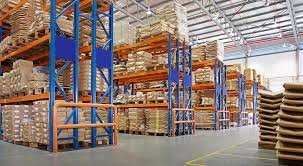Automation is rapidly transforming industries, creating smarter, faster, and more efficient operations. At the heart of this transformation lies accurate data collection, and temperature is one of the most important variables to monitor. Industrial temperature sensors have long been essential for safety and quality, but their role is expanding in an automated world. The future of these sensors points toward greater intelligence, connectivity, and adaptability.
The Role of Automation in Modern Industry
Automated systems depend on precise, real-time data to function effectively. Whether controlling heating systems, ensuring machinery operates safely, or maintaining product quality, automation requires sensors that can provide reliable input. Industrial temperature sensors serve as critical components in this ecosystem, feeding accurate information to machines and software for instant decision-making.
Smart Sensors and Artificial Intelligence
Future temperature sensors are expected to go beyond simple measurement. With integration into artificial intelligence platforms, sensors will be able to detect patterns, predict potential failures, and recommend corrective actions. This shift from reactive monitoring to predictive control will significantly reduce downtime and increase operational efficiency across industries.
Wireless and Remote Monitoring
The rise of wireless technology is already changing how industries use temperature sensors. In the future, wireless connectivity will become standard, allowing sensors to monitor even the most challenging or remote environments. Remote monitoring capabilities will give industries the ability to track conditions in real time from anywhere, enhancing flexibility and control.
IoT and Data Integration
The Internet of Things (IoT) is a driving force in automation, connecting devices into unified networks. Industrial temperature sensors will play a bigger role in IoT-enabled factories, sharing data not just with machines but also with cloud systems and analytical tools. This integration will provide industries with deeper insights, enabling smarter decisions and continuous process improvement.
Enhanced Accuracy and Durability
Advances in materials and design will continue to improve the accuracy and durability of sensors. This will allow them to operate reliably in extreme conditions, from high-heat furnaces to cryogenic environments. Enhanced durability will reduce maintenance needs, ensuring uninterrupted operations and lower long-term costs.
Sustainability and Energy Efficiency
As industries move toward sustainable practices, temperature sensors will help optimize energy usage. By ensuring systems run only when necessary and preventing energy waste, sensors will directly contribute to greener operations. Their role in balancing efficiency with environmental responsibility will make them even more indispensable in the future.
Conclusion
Industrial Temperature Sensors will shape the future of automation by becoming smarter, more connected, and more efficient. Their integration with AI, IoT, and wireless technologies will transform them from simple measurement tools into intelligent systems that enhance safety, productivity, and sustainability. In an increasingly automated world, these sensors will continue to stand at the center of innovation and industrial progress.





